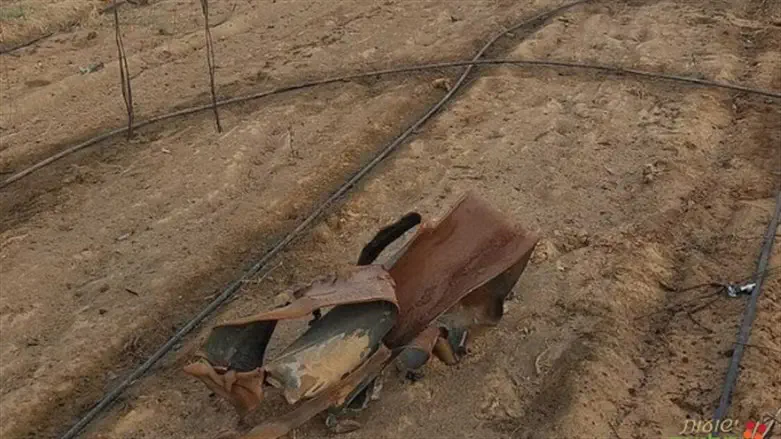
Israeli farmers Eli Feinsilver, Yair Ziv, Sharon Cohen, and Rabbi Yitzchak Sofer are dealing with the aftermath of a direct missile hit to their farm.
With 160 dunams (40 acres) of land, the farmers grow over 20 tons of cucumbers, cherry tomatoes, carrots, squash, peppers, cauliflower, broccoli, and more yearly. Most of their produce is grown in hothouses, with the vegetables growing vertically from sand. Unlike produce that grows from the ground, these delicate crops need constant tending.
DONATE HERE TO HELP Farm in Eshkol
After the devastating attack on October 7th, the area was evacuated for safety purposes, and the farmers were unable to tend to their crops. When they returned a week later, they found that most of their vegetables were ruined- and one of their hothouses had sustained a direct hit. The shrapnel penetrated several hothouses, which completely demolished the irrigation system, electricity, infrastructure, and more, leaving them entirely useless. To compound the issue, their Thai workers left the country, so there wasn’t enough manpower to harvest the produce that could have been salvaged.
These religious and idealistic farmers left Gush Katif and arrived in Eshkol, near the Southern border, 15 years ago to cultivate the land and make it prosper. Today, they have a large operation, including a 150,000 shekels weekly contract with the Ministry of Education to provide 15 tons of vegetables to children in schools across the country. Produce not transported to the schools is sold to grocery stores and markets all over Israel.
However, since the war broke out, their contract with the Ministry of Education has been put on hold. Although volunteers have turned up from around the country to help the farmers, they are not nearly enough because many people are afraid to venture near the Southern border. Additionally, although well-meaning and good-hearted, the volunteers are not skilled enough to repair the damage and plant new crops for the next season. The roads to the farm are closed, so there are no trucks to transport whatever vegetables have been harvested. The farm is in disarray, and right now, the Israeli government hasn’t committed to helping them rehabilitate their farm yet.
These heroic farmers, just two years post-shemittah, are afraid that the situation will only worsen with time, eventually leaving their farms damaged beyond repair. Thousands of schoolchildren are relying on them. Hundreds of stores across the country are waiting for their vegetables. As one of the farmers, Eli Feinsilver, said: “People think that the heart of Israel is Tel Aviv. Actually, the heart of Israel is right here in the farms of the South. Because without our vegetables, everyone in Tel Aviv and around the country wouldn’t have food to eat!”

The farmers need funds to repair the expensive infrastructure of the hothouses, pay skilled workers, purchase expensive pesticides to spray the plants that no longer have the hothouses to protect them from bugs, remove the diseased crops, and plant again from the start.
If you would like to contribute to helping these farmers bring glory to the Land of Israel once again, click here.
DONATE HERE TO HELP Farm in Eshkol